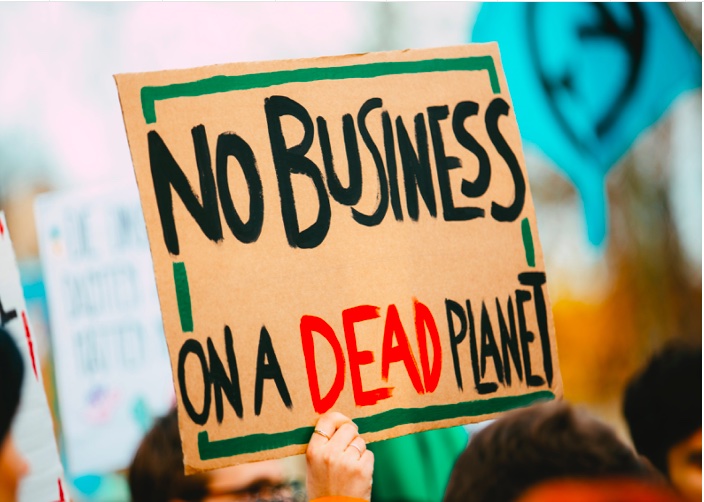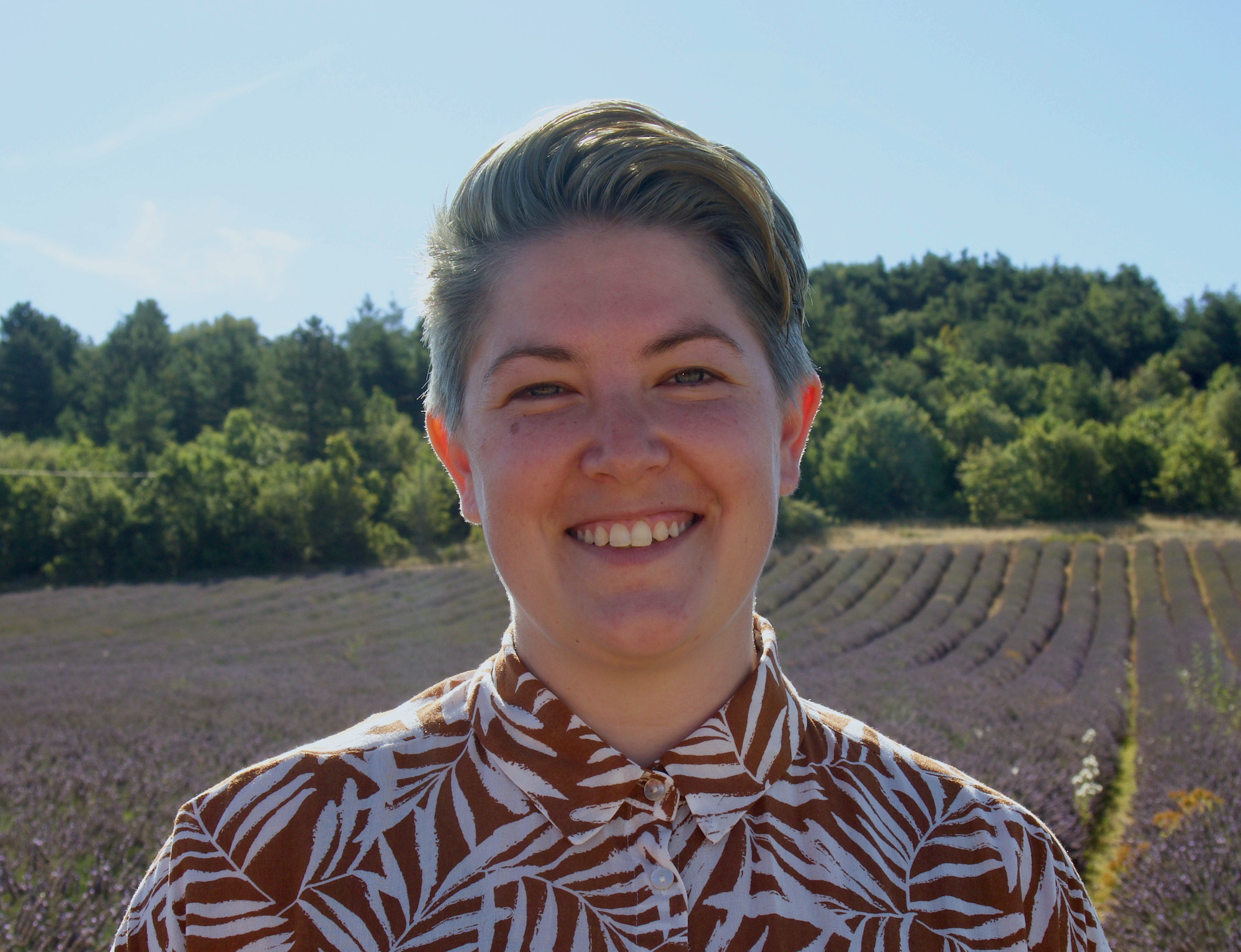Climate change as a business and human rights issue
by Stephanie Triefus

source: Markus Spiske via Unsplash
Climate change is increasingly understood as an issue that entails responsibility from all organs of society, including businesses. Law is one of the tools being picked up by activists and affected communities to hold the largest polluters accountable for their contribution to climate change and its devastating impacts.
On 15 October 2020, the NNHRR Business and Human Rights Working Group held an online panel discussion on the intersection between climate change and business and human rights. As climate change has only recently started to be integrated into the business and human rights debate, this event aimed to bring in the voices of scholars and practitioners who are tackling corporate and state accountability for climate change from different perspectives. The panelists included Annalisa Savaresi (University of Stirling), Damilola Olawuyi (Hamad Bin Khalifa University) and David Birchall (University of Nottingham Business School, Ningbo). This blog recaps the ideas put forward by the panellists in their presentations and insightful discussions with the audience through the Q&A session. A recording of the event and the panelists' slides can be found on the NNHRR website.
The Carbon Majors and climate accountability: Lessons from the Philippines - Annalisa Savaresi
Annalisa Savaresi’s insightful presentation focused on the National Inquiry on Climate Change (also known as the Carbon Majors Inquiry) initiated by the Philippines Human Rights Commission, an independent National Human Rights Institution. The inquiry came about in response to calls from a large group of Filipino individuals and civil society organisations to investigate the responsibility of global corporations identified by scientists as the main culprits of greenhouse gas emissions. Savaresi considers that, although the inquiry was a dialogical and quasi-judicial process, it was significant and groundbreaking. The inquiry was brought on the basis of international and domestic human rights law, against companies that were not headquartered locally, which was something that had not been done before in the Philippines or elsewhere. Although the Commission has not released its report, it announced its findings that the largest greenhouse gas-emitting corporations could be found legally and morally liable for human rights harms to Filipinos resulting from climate change. While the inquiry will not lead to binding outcomes, the finding of corporate responsibility for human rights violations caused by climate change impacts has important rhetorical value and may assist judicial mechanisms to make similar investigations in the future.
For Savaresi, the inquiry affirmed the fact that human rights are a crucial means to address the justice questions associated with climate change, delivering remedies where none are available and providing a forum for victims to have their voices heard. Those who are affected by climate change in the Philippines were able to provide evidence in the proceedings, and Savaresi notes that one of the key successes of the inquiry was that these people felt empowered by the process and that they were being heard for the first time. Furthermore, human rights fill a gap in climate change accountability while more appropriate legal instruments are crafted. Savaresi urged lawyers that “human rights are there to be used”, to take up these opportunities and push the boundaries of the law. Finally, human rights are instrumental in bringing about a change in attitude by courts and lawmakers, which to some extent is already happening, although “much more needs to be done”.
Corporate due diligence in the era of climate change - Damilola Olawuyi
In his presentation, Damilola Olawuyi asked the question of what corporate human rights due diligence (HRDD) means today in relation to addressing human rights impacts linked with climate change. Olawuyi suggests that there is a need for businesses to have tailored internal climate change risk control and management systems. There are human rights considerations attached to risks relating to structure, transition and disclosures, such as whether a target for acquisition has made public statements concerning climate change risk that could be misleading. Olawiyi identified a growing number of studies, reports and declarations that recognise the need for HRDD in all key sectors, such as the UN Guiding Principles on Business and Human Rights (UNGPs) and the African Union’s Resolution on a Human Rights-Based Approach to Natural Resources Governance. Against this background, Olawuyi developed a set of guiding principles contextualising existing HRDD principles in terms of climate-related risk, including material risk identification and human rights due diligence, business-wide risk control methodology, focal point for systemic risk control, proactive corporate reporting, and education and monitoring.
Finally, Olawuyi stressed that it is now a necessity for businesses to anticipate and address climate-related human rights risks in their investments and projects. Even where domestic law is silent on climate change, there is a strong business case for incorporating human rights considerations into investment analysis and management processes. The human rights due diligence framework provides a toolbox for ensuring a coherent and less fragmented implementation of existing international law on sustainable development, human rights and climate change. Sound human rights due diligence processes “can help enterprises to build and maintain strong social license to operate and to foster relationships with host countries, local communities, customers and other stakeholders based on mutual respect, acceptance and trust.”
Remediating climate change through the UN Guiding Principles - David Birchall
David Birchall, in his presentation on large-scale adverse human rights impacts of businesses, proposed to address such impacts through the language of the UNGPs. Under the UNGPs, an adverse human rights impact is an act that ‘removes or reduces an individual’s enjoyment of his or her human rights.’ Business contribution to climate change seriously impacts human rights through behaviour that is mostly legally permitted. Such ‘large-scale’ impacts usually cannot be tackled effectively via justiciability due to difficulties proving causation, and the existence of multiple contributors and disparate victims, and so some creativity is required to conceptualise and address such impacts.
In order to tackle this gap, Birchall suggested that a trust fund for victims of climate change could be established under Pillar Three of the UNGPs, which would allow for impacts that cannot be directly remediated by one company to be remediated by the trust fund. While the details are not fully fleshed out, two versions of the trust fund are envisioned: one would disaggregate funds to allow, for example, major polluters to remedy climate change harms. Another version would involve all large companies paying into the fund, allowing for all impacts to be remediated as they occur. Such a solution would avoid ‘blaming’ any individual company or requiring companies to accept liability, but would allow all contributors to provide some remedy to climate change impacts. At the same time, Bichall stressed that the proposed fund would be intended to complement other available forms of remedy, and should not prejudice individuals from making claims elsewhere.
The road ahead
Radical thinking is needed in order to hold businesses accountable and create a regulatory environment able to tackle the challenges we are facing. Although the use of fossil fuels, according to one questioner, is fundamentally at odds with the UNGPs, it is not feasible to stop all use of fossil fuels today, and so a systematic approach is needed to transition to renewable energy. There are actions that fossil fuel companies can take to mitigate their impact, such as researching fuel alternatives, agreeing to lower emissions and making use of bridging fuels such as natural gas. There is a need for clear and coherent legislation and national policies on business and human rights and climate change, starting with a clarification of what a standard of ‘climate due diligence’ would look like under the UNGPs. At the same time, it is important to ensure that in the transition from soft to hard legal standards, ambitious targets and measures are not lost. When it comes to climate change, all tools are useful and every tool in the toolbox should be used. We look forward to continuing this important and emerging conversation in future events of the Working Group, and invite those who are interested to join the Working Group and let us know what they would be interested in exploring.
Bio:

Stephanie Triefus (@stephtriefus) is a PhD Candidate at Erasmus University Rotterdam and a Co-Chair of the NNHRR Business and Human Rights Working Group. Her PhD research is on the human right to participate in public affairs and international investment law.
triefus@law.eur.nl
Further reading
- David Birchall, ‘Irremediable impacts and unaccountable contributors: the possibility of a trust fund for victims to remedy large-scale human rights impacts’ (2019) 25(3) Australian Journal of Human Rights 428-447
- David Birchall, ‘Any Act, Any Harm, To Anyone: The Transformative Potential of “Human Rights Impacts” Under the UN Guiding Principles on Business and Human Rights’ (2019) 1(2) University of Oxford Human Rights Hub Journal, 120-146
- Damilola Olawuyi, ‘Climate Justice and Corporate Responsibility: Taking Human Rights Seriously in Climate Actions and Projects’ (2016) 34(1) Journal of Energy and Natural Resources Law 27-44
- Damilola Olawuyi, ‘Can MENA Extractive Industries Support the Global Energy Transition? Current Opportunities and Future Directions’ (2020) Extractives Industry and Society Journal
- Annalisa Savaresi, ‘Human Rights Responsibility for the Impacts of Climate Change: Revisiting the Assumptions’ Onati Socio-legal series (2020)
- Annalisa Savaresi and Jacques Hartmann, ‘Using Human Rights Law to Address the Impacts of Climate Change: Early Reflections on the Carbon Majors Inquiry’ in Lin and Kysar (eds), Climate Change Litigation in the Asia Pacific (CUP 2020)
- Annalisa Savaresi and Juan Auz ‘Climate Change Litigation and Human Rights: Pushing the Boundaries’ (2019) 9 Climate Law 244
- Annalisa Savaresi, Sébastien Duyck, Erika Lennon, Wolfgang Obergassel, ‘Human Rights and the Paris Agreement’s Implementation Guidelines: Opportunities to Develop a Rights-Based Approach’ (2018) 12 CCLR 191
- Annalisa Savaresi et al., Amicus Brief: Human Rights and Climate Change (GANHRI and APF, 2017)
- Chiara Macchi, ‘The Climate Change Dimension of Business and Human Rights: The Gradual Consolidation of a Concept of ‘Climate Due Diligence’’ (2020) Business and Human Rights Journal 1. doi:10.1017/bhj.2020.25
- Kate Cook, ‘Due diligence, tenure and agricultural investment - A guide on the dual responsibilities of private sector lawyers in advising on the acquisition of land and natural resources’ (UNFAO, 2019)
- International Bar Association, Practical Guide on Business and Human Rights for Business Lawyers (2016)